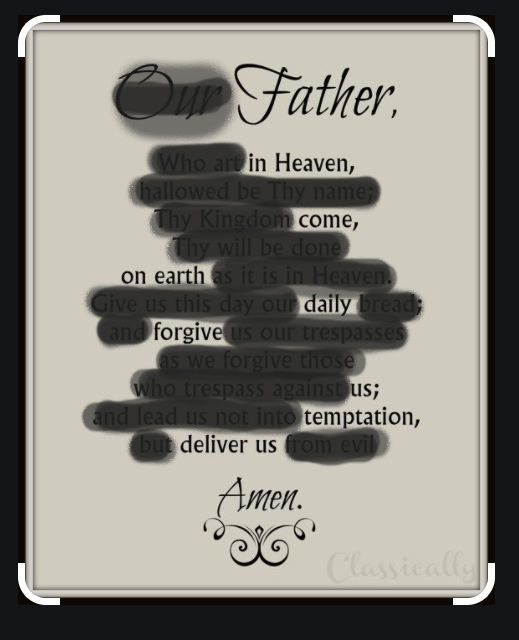This week because it’s the beginning of a new month!
Colleen Chesebro says, “This challenge is NOW a true poet’s choice! Use any poetry form that you’d like including free-style or prose poetry. If your form is something new, teach us how to write it. Have fun!“
She suggested several forms, take a look here, CLICK!
I wanted to try as she suggested FOUND POETRY with there being several different methods, I choose the BLACK OUT! Using the Lord’s Prayer also know as The Our Father.

A blackout poem begins with an existing text, usually a newspaper. Using a heavy black marker, the writer blots out most of the page. The remaining words are not moved or rearranged. Fixed in place, they float in a sea of darkness. The contrast of black and white stirs thoughts of censorship and secrecy. What’s hiding behind the headlines of our daily paper? What does the highlighted text reveal about politics and world events?
The idea of redacting words to create a new work goes back centuries, but the process became trendy when writer and artist Austin Kleon posted newspaper blackout poems online and then published his book and companion blog, Newspaper Blackout.
Evocative and dramatic, blackout poems retain the original typography and word placement. Some artists add graphic designs, while others let the stark words stand on their own.



